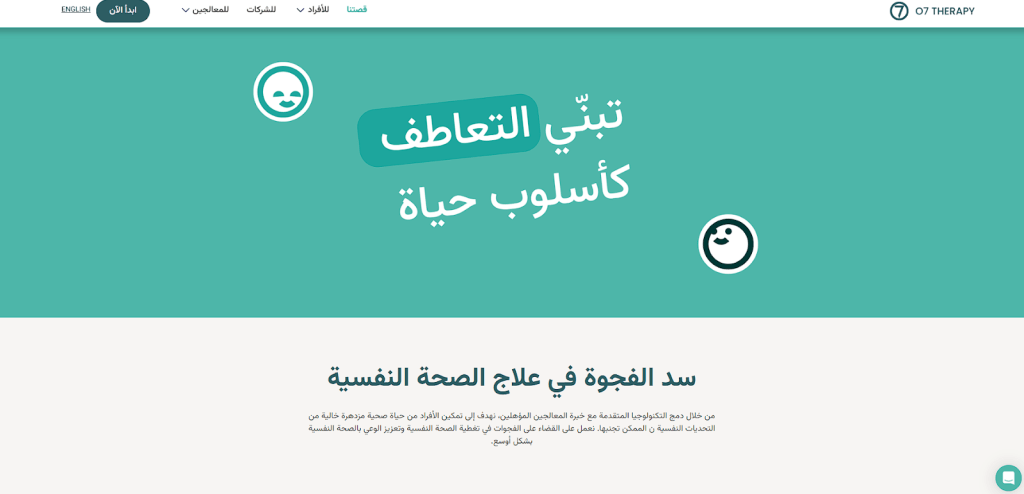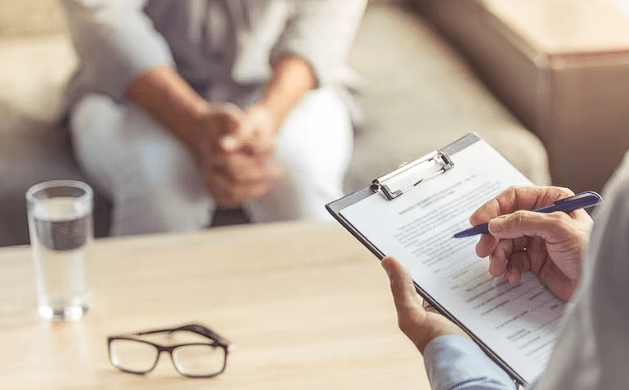By Omar Gouda
Recently, in the Arab world, a quiet mental health revolution is unfolding. Arabic-first wellness platforms are challenging stigma, closing care gaps, and reshaping how therapy is accessed in a region that’s long been underserved. Let’s have a look at some of these apps.
O7 Therapy: Cairo’s Digital Gateway to Mental Wellness
Leading the charge is O7 Therapy, a Cairo-born startup offering a discreet, culturally attuned gateway into psychotherapy. With over 60k hours of virtual sessions delivered across 110+ countries, the platform reflects both strong local demand and a growing appetite from the global Arabic-speaking diaspora.

O7 Therapy uses a “matching call” system in which users complete a brief questionnaire and can book a same-day consultation to receive therapist recommendations. For those who prefer to browse, the platform also offers self-matching—users can search by keywords like “burnout,” “anxiety,” or “emotional regulation,” and filter by language, specialization, or therapist gender. Privacy is a core feature: sessions aren’t recorded, pseudonyms are supported, and data security is built into the platform’s design.
Trust is everything in a region where therapy has long carried social stigma. O7 Therapy isn’t just a tech startup; it’s a cultural shift. Launched during the pandemic, the platform gained traction as people turned to their devices for support. Backed by $2.1 million in seed funding, O7 is now scaling across MENA and expanding its features to meet growing demand.
Tuhoon: Building a Culture of Wellness in the Gulf
Over in the Gulf, Tuhoon is carving out space for culturally attuned mental wellness. Launched in Riyadh in 2021 by entrepreneur Fares Ghandour, clinical psychologist Dr. Naif Almutawa, and technologist Aymane Sennoussi, the startup rolled out its self-help app in March 2022. The platform offers audio content in Khaleeji dialects from meditations and sleep stories to stress relief tools and emotional check-ins, designed to resonate with local audiences.

Ghandour framed the mission bluntly: “It’s a question of offering accessibility, quality, affordability, normalisation … in a language that speaks to people in their own dialect.” The content is crafted by regional psychologists and coaches, ensuring it speaks to local experiences rather than just repackaged Western advice.
The cultural attunement really matters here. A workplace study commissioned by Tuhoon revealed that over 80% of Saudi organizations lack dedicated mental health resources. Among employees, those over 45 were less likely to talk about mental health, while younger workers and women showed greater openness—especially in private, digital spaces.
Tuhoon is also expanding into workplace wellness, giving employers the option to subscribe to its content library and integrate it directly into HR programs.
Lifemost: Redefining Workplace Wellness in the UAE
In the UAE, Lifemost is tapping into what many consider the quiet unlock for mental health: corporate care. Founded in Dubai, the startup raised $650k in pre-seed funding in 2023 to build out its platform, which helps companies offer tailored mental and physical wellness services to employees. Its app brings everything together—online talks, mindfulness sessions, fitness classes, and live workshops—customized to fit each organization’s needs.

Lifemost uses AI to tailor the experience, analyzing behavioral patterns to suggest relevant content and surface wellness tools when they’re most needed. Its core message is clear and strategic: mental health shouldn’t be a personal struggle; it should be a built-in workplace benefit.
These platforms, and others, aren’t just digitizing therapy; they’re reframing it. By speaking in Arabic and local dialects, prioritizing privacy, and embedding mental health into everyday life, they shift the narrative from pathology to personal care. Their approach blends clinical rigor with user empathy, breaking down barriers of stigma, cost, and cultural disconnect.



